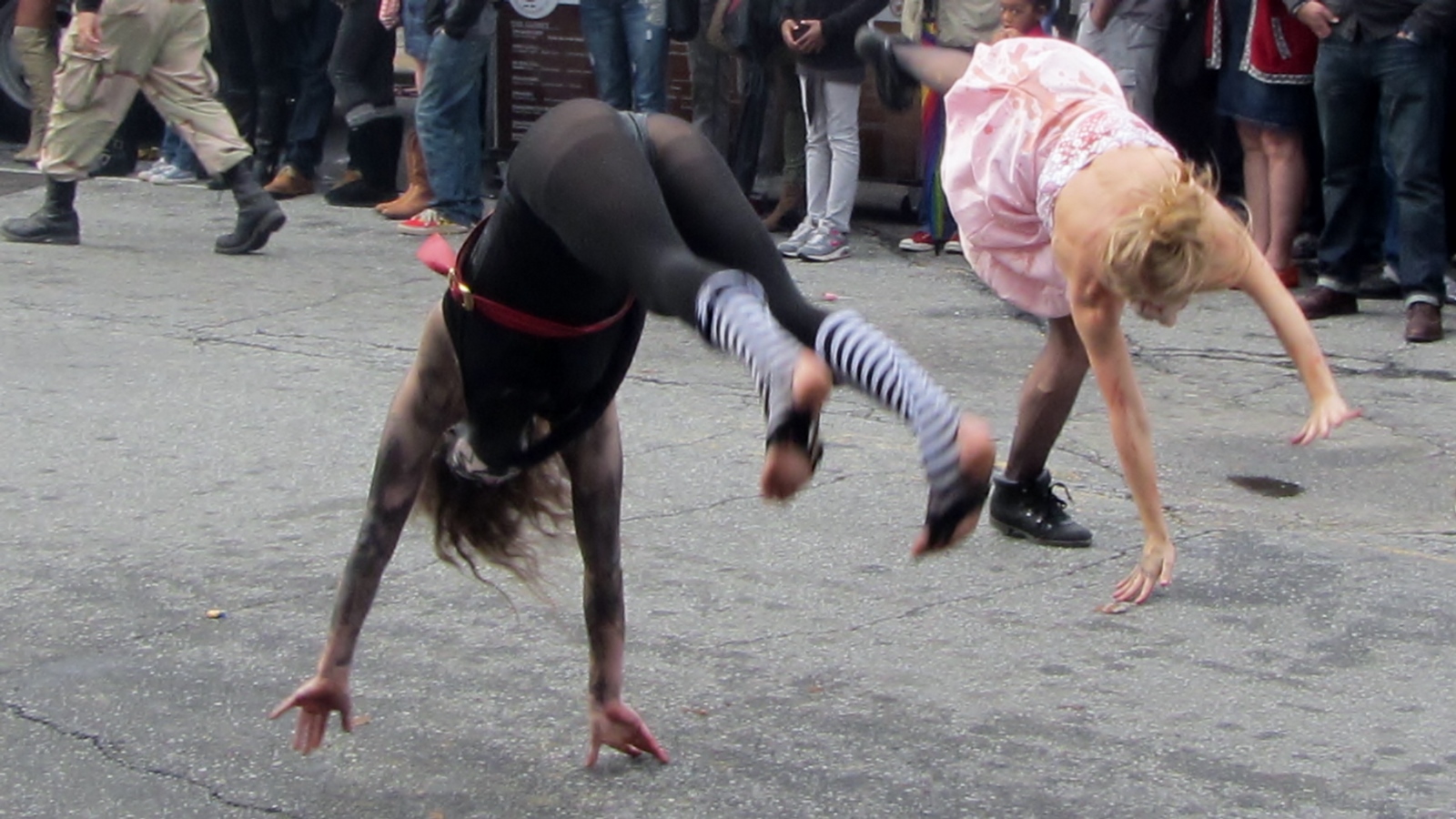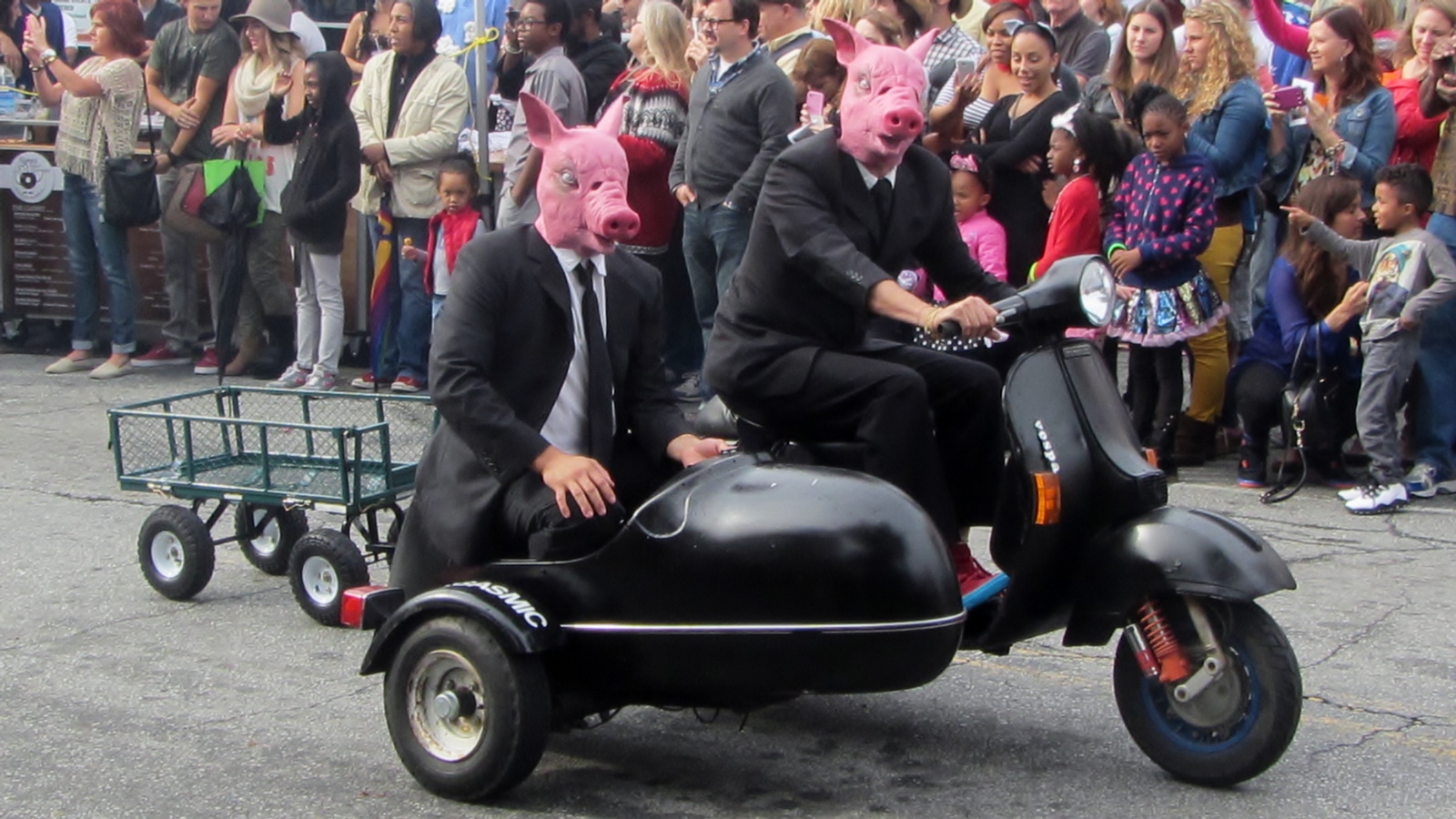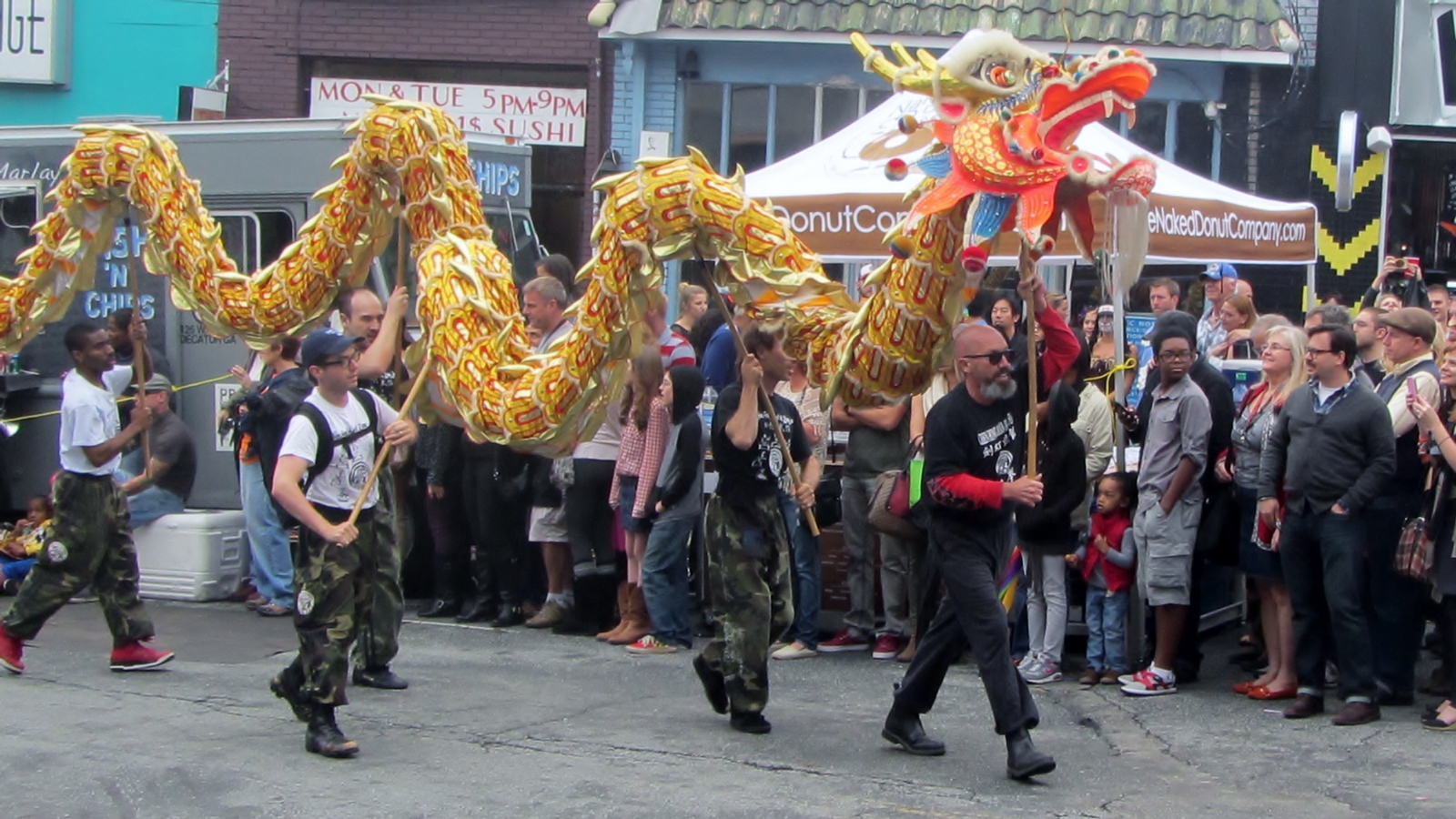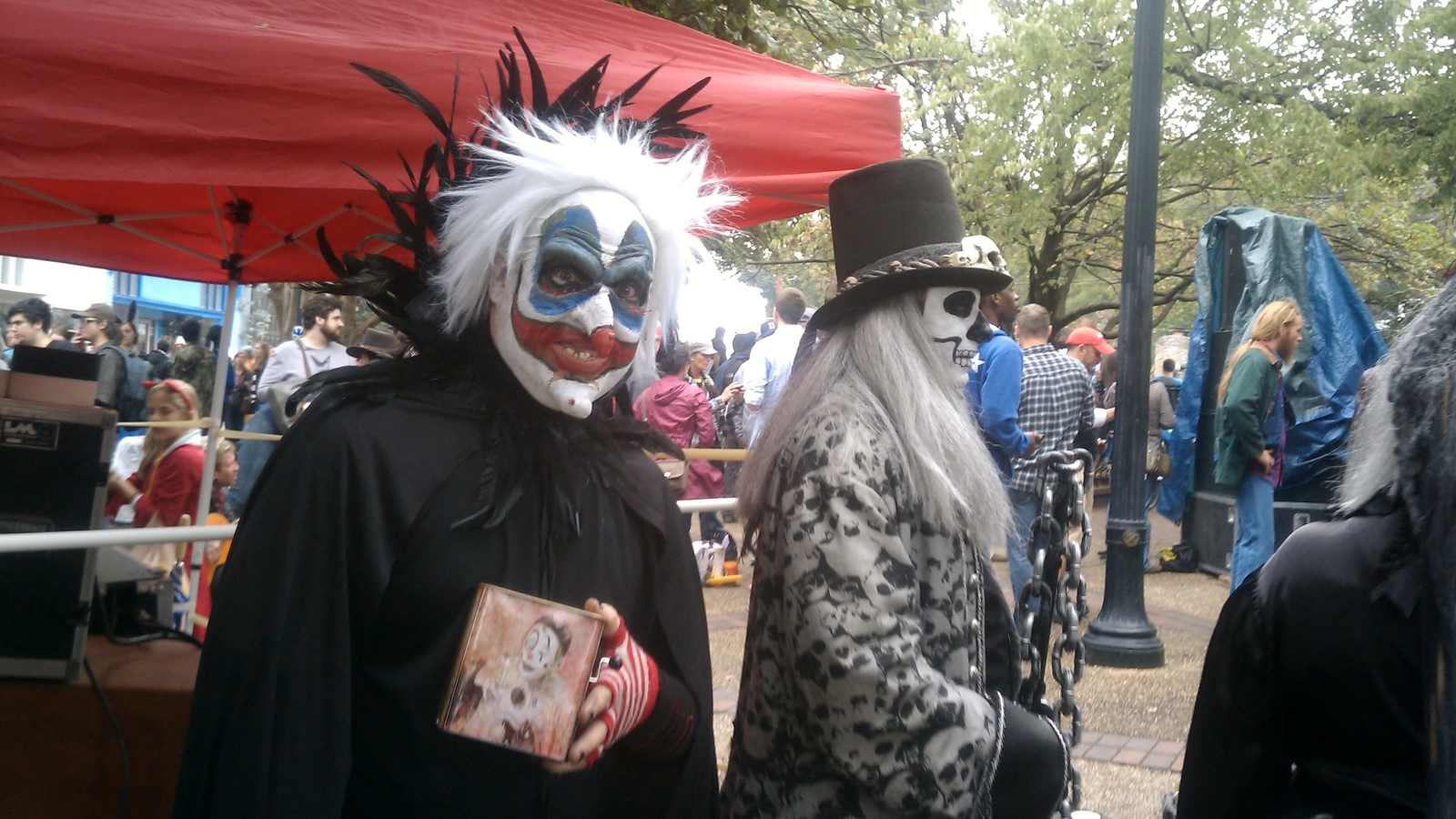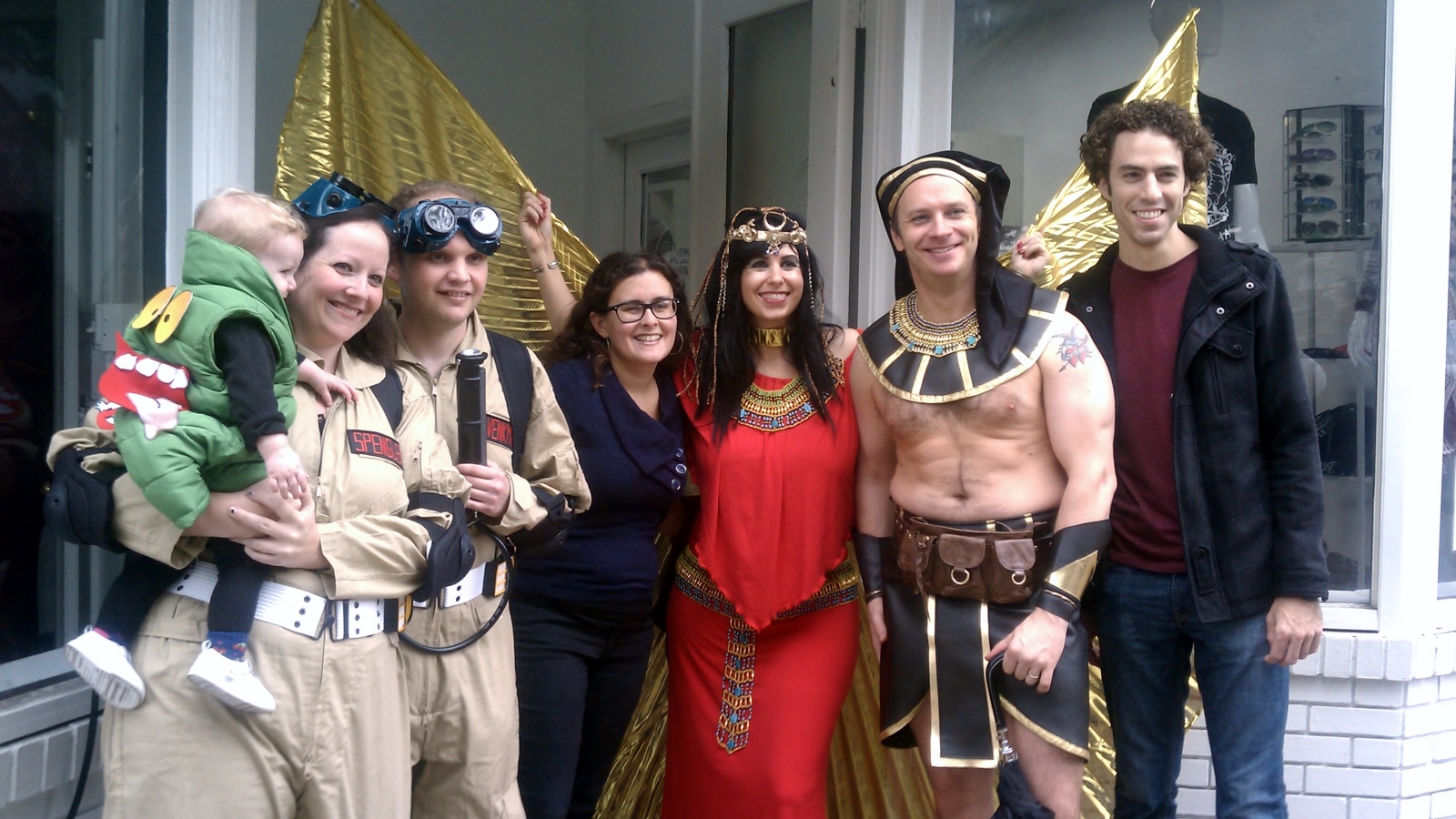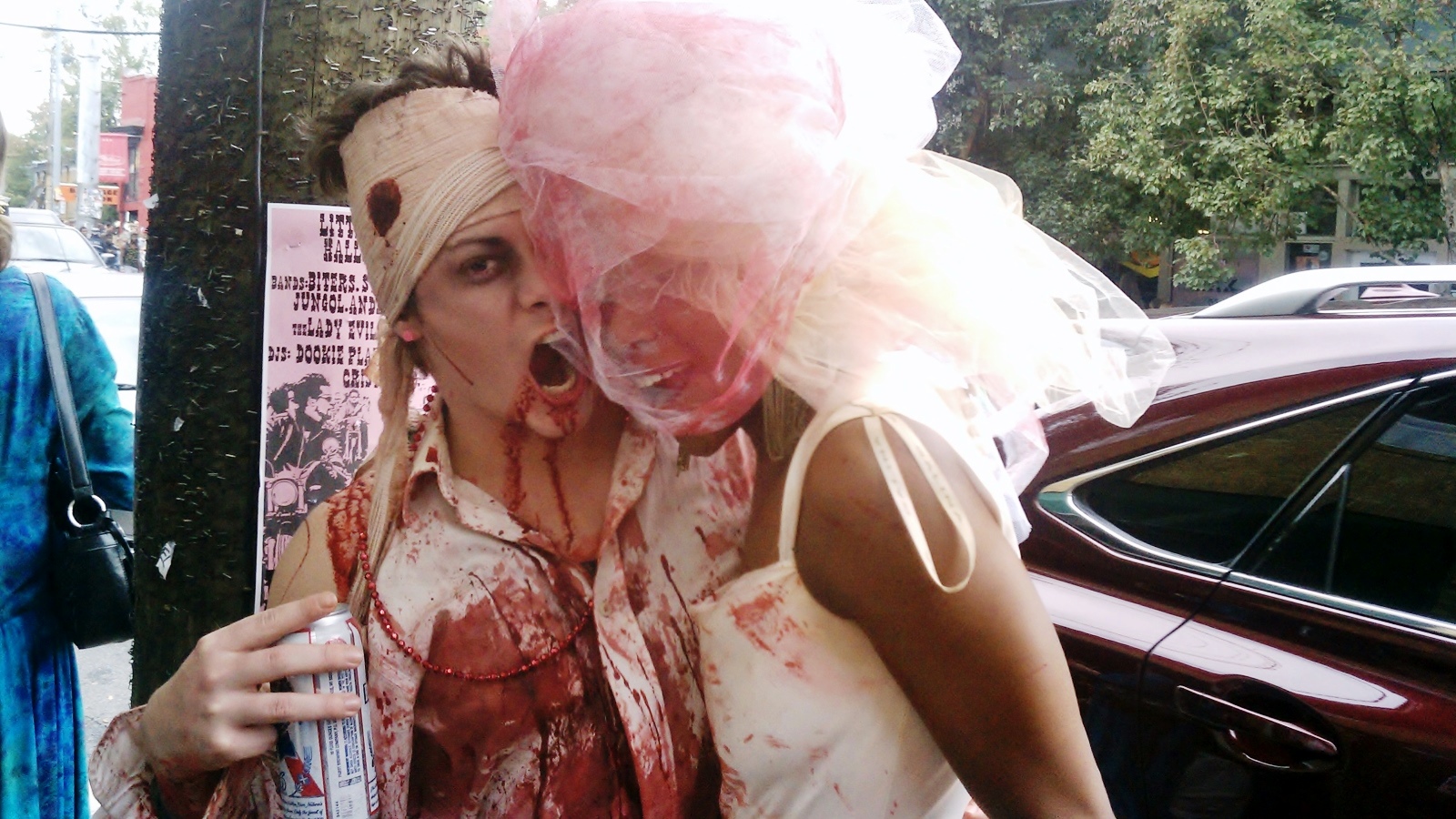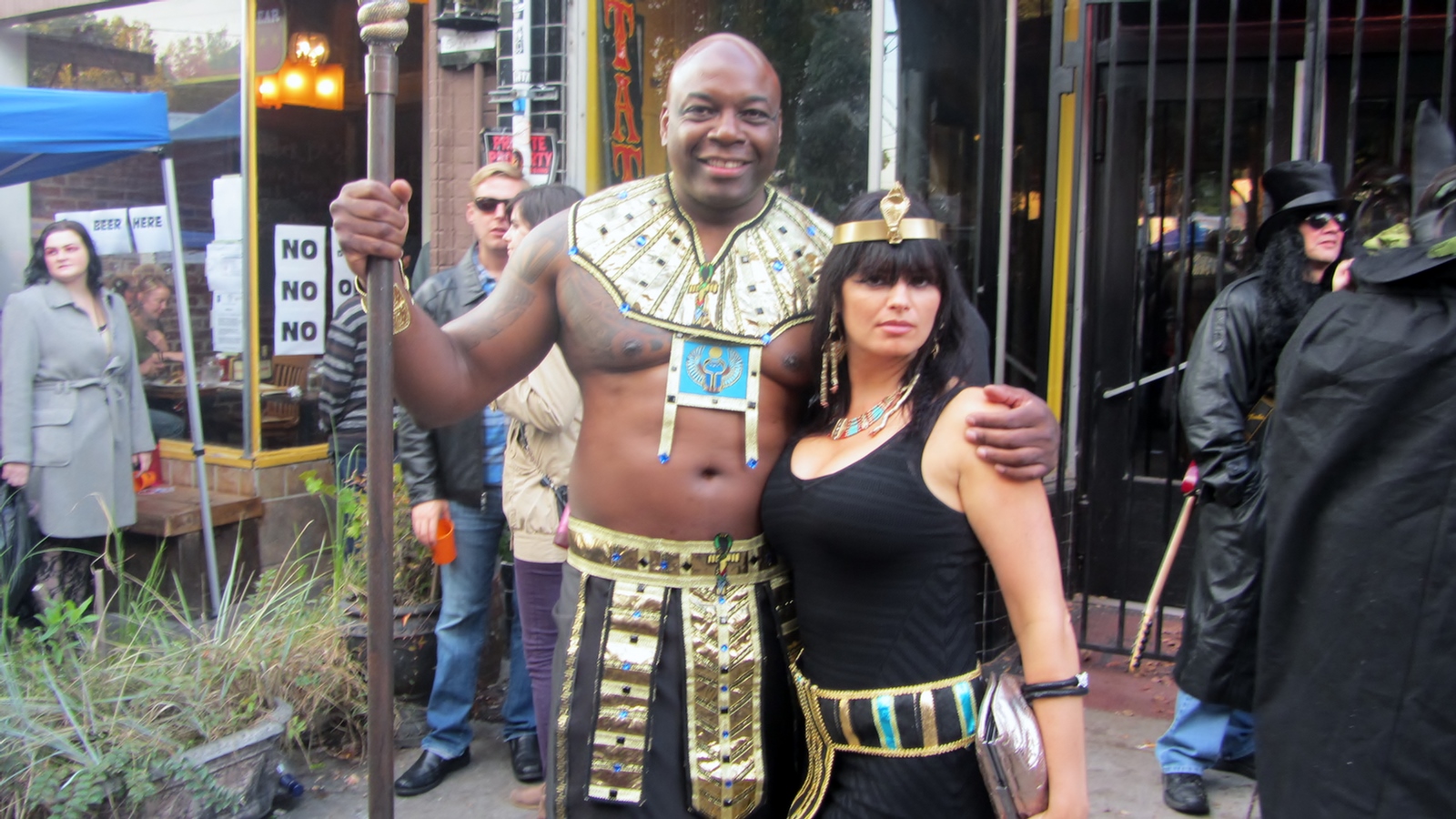Boo!
"Why Can't I Be Different and Original . . . Like Everybody Else?" - Viv Stanshall
Thursday, October 31, 2013
Wednesday, October 30, 2013
Red Sox Win Another World Series
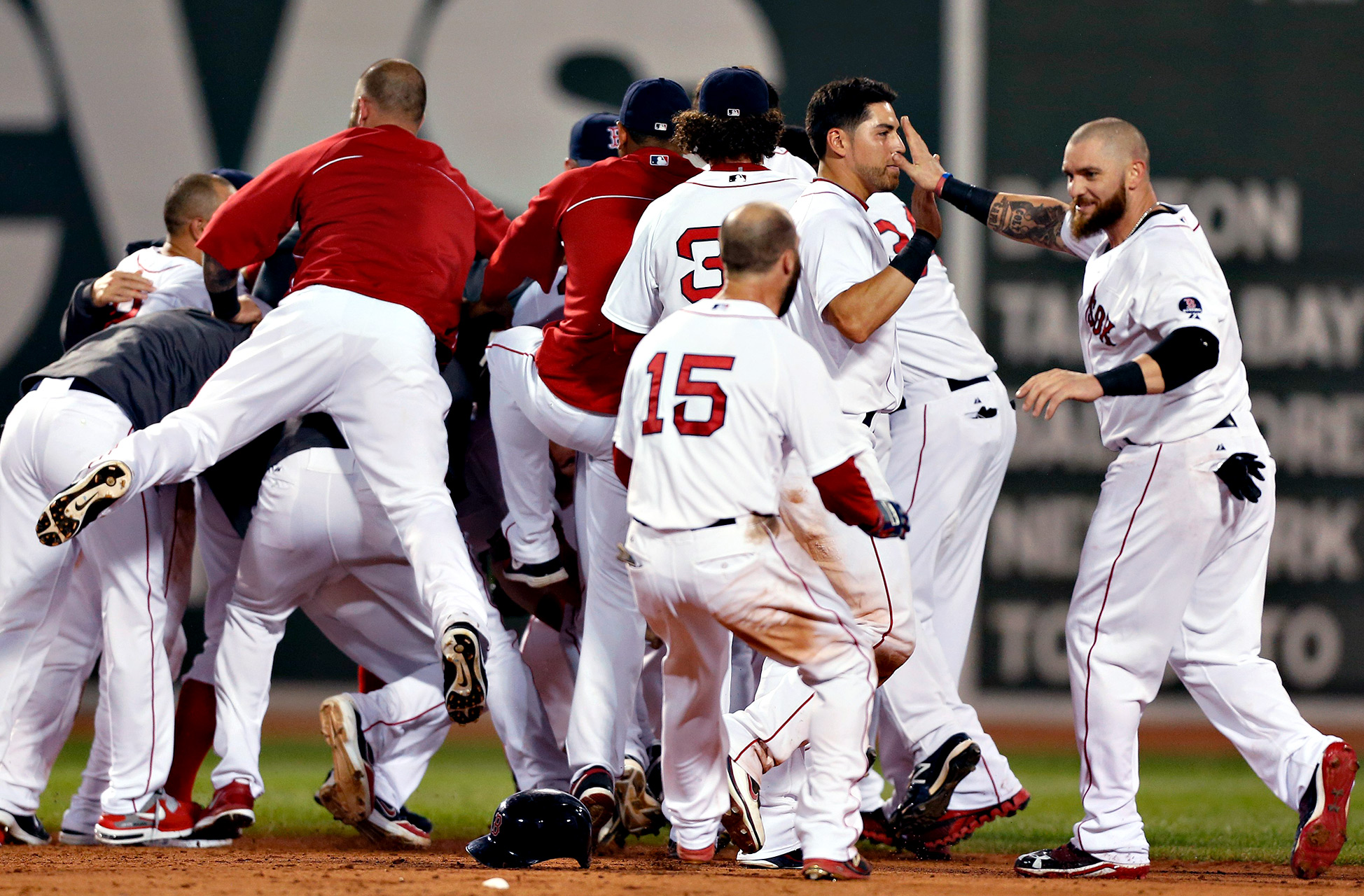
It's interesting to note that after the game-ending obstruction call that gave the St. Louis Cardinals a Game 3 victory, the Boston Red Sox didn't lose a single game, winning the next three games, the final Game 6 emphatically. The old Sox that I remember from the 70s and 80s might have been so psychologically thrown off by that one play and the game-ending call, that they could have wound up losing the Series altogether.
At the time, it felt like the obstruction call might go down in Red Sox history as another of those awful events, like Bucky Dent's home run in 1978 or Bill Buckner's error in 1986, that defined an era of loss and frustration. But the curse was lifted in 2004, Boston rebounded from the loss, and the Red Sox are the 2013 World Series Champions.
Tuesday, October 29, 2013
Sunday, October 27, 2013
A Meditation on the Outcome of Game 3 of the 2013 World Series
Today, I went up to visit the Chattanooga Zen group for the first time since my departure from the Atlanta center. I was kindly invited up as today was the initiation ceremony for a young man whom I mentored for several years while I was making my monthly visits up to Chattanooga. I was pleasantly surprised to learn while I was up there that the idea for inviting me up came not from the initiate or even a Chattanoogan, but from the roshi of the Atlanta center, with whom I had the falling out.
But anyway, that's not want I want to talk about. Like many others, I want to talk about the ending of last night's Game 3 of the World Series between the Boston Red Sox and the St. Louis Cardinals. Since Red Sox and Cards fans seem to see it differently, being a fan of the former I have my own built-in biases. To at least partially counteract my own biases, here's a version of the events from the St. Louis Post-Dispatch:
The lollapalooza commenced when Jon Jay hit a sizzling ground ball, snatched by Red Sox second baseman Dustin Pedroia, who threw a dart home to cut down (Yadier) Molina. The opportunistic but physically limited (Allen) Craig took off for third base on Pedroia’s throw . . . Boston catcher Jared Saltalamacchia shouldn't have done it but he fired the ball to third to nab the sliding Craig and snuff the Cardinals’ threat. But an overthrow zoomed beyond third, into foul ground near left field. Craig tried to get up, but was tangled with Boston third baseman Will Middlebrooks, who was face down on the infield dirt. Craig dislodged himself, but Middlebrooks raised his legs, and Craig tripped. Finally a free man, Craig made a desperate bid to score, not knowing that (third base umpire Jim) Joyce had already made the obstruction call that had brought Game 3 to a chaotic close.
No one likes to see a game, much less a World Series game, decided by any umpire's call other than balls and strikes. In almost every sport, it's said that the best officiating is when the officials are "invisible." But there are several interesting (at least to me) observations that can be drawn from last night's game:
1. As alluded to earlier, Boston and St. Louis fans seem to view the events completely differently. St. Louis fans justifiably claim that the rules are the rules, everyone has to abide by them, and that by raising his legs, Middlebrook was unquestionably attempting to interfere with Craig's run. Red Sox fans point out that Craig tripped over Middlebrook's torso, not his legs, and besides, what was he supposed to do? If he got up, he'd unquestionably would have been interfering, but if he stays down, apparently that's interference as well. And as the diving baseman and the sliding runner both got themselves tangled up, don't they share some responsibility for the results?
In a game of this importance, Red Sox fans argue, the umpires should give the players a little leeway and let the outcome of the game be decided by the players, not the officials. For example, in the NBA Finals, the refs usually allow a little more contact than they might during the regular season so that the game isn't decided by their opinion on who initiated contact with who in the closing seconds. St. Louis fans, in turn, accuse the Red Sox of cheating.
There's some validity to both arguments, but this is a good example of how one's perception is altered by one's loyalties. To a St. Louis fan, it's obviously interference and an attempt at cheating (the raised legs). It's more complicated than that to Red Sox fans. How you see it largely depends on who you're cheering for.
2. I've often thought of the Democratic-Republican argument over the size and role of government in terms of a sports analogy. To Republicans, the best government is the one that governs the least, while Democrats seem fine with government regulation. In sports, everyone agrees that referees or umpires are necessary, but disagree over how much influence they should have on the game. The Republican analogy would be to prefer the game where the refs let the players push each other around a little and decide the outcome of the game for themselves, without a lot of "pass interference" calls or "personal fouls."
In this analogy, the Democrats want the officials to ensure a level playing field, not let anyone bend a rule that might affect the outcome of the game, and make sure the victors played completely within the bounds of the rules.
That being the case, last night's victory by St. Louis should be anathema to Republicans, while Democrats should be comfortable with Boston's loss.
3. On the other hand, if we apply Jonathan Haidt's sets of moral values to the game, we get the opposite conclusion. According to Haidt, it's the left that values "fairness" and "care over harm." If you can accept that Middlebrook's actions technically violated the interference rule but was unintentional, then "fairness" says that he and his team shouldn't have been penalized for the unintended consequences of the play. Further, if you can accept that the players got entangled with one another due to the actions of both the sliding baserunner and the diving baseman, "fairness" does not dictate a one-sided penalty, even if that's all that the rules allow. Therefore, the left should be aghast at last night's decision.
However, the right values heirarchy, allegience, and purity in addition to fairness and care-over-harm. These values are more sympathetic with the view that the umpire has the ultimate authority (heirarchy), you should accept the conclusion that's most favorable to your team (allegience), and the sanctity of the rules shouldn't be compromised (purity). That being the case, you're more likely to look favorably at last night's outcome if you're on the political right, especially if you're a Cardinals fan.
Okay, okay, okay - I'll admit I've thought about this WAY too much. As mentioned at the top of this post, I drove up and back to Chattanooga today (four hours total), not to mention the sitting meditation, so I've had a lot of time to think about this.
Game 4 is tonight. Let's hope that we don't have to have this conversation again.
Saturday, October 26, 2013
Faith In Mind
In his TED talk, Jonathan Haidt quotes Chinese Zen Master Seng-ts'an, more commonly known as Sengcan, the Third Chinese Patriarch.
"If you want the truth to stand clear before you," Haidt quotes Sengcan, "never be for or against. The struggle between 'for' and 'against' is the mind's worst disease."
According to legend, Bodhidharma bought the true meaning of Buddhism to China, and passed it on to his eventual student Huike, who later passed it on to Sengcan. It is said that Sengcan was over forty years old when he first met Huike in the year 536, staying with him for six years.
On his first encounter with Huike, Sengcan said, "I am riddled with disease. Please absolve me of my defilement," and Huike replied, "Bring your defilement here and I will absolve you." After a long pause, Sengcan said "When I look for it, I cannot find it." Huike replied, "I have absolved you. You should live by the Three Treasures" (Buddha, dharma, and sangha).
In the year 574, Sengcan fled to the mountains with Huike due to the Buddhist persecution underway at that time. Following the overthrow and death of the Buddhist benefactor Emperor Wu, the subsequent government attempted to exterminate Buddhism by closing temples, destroying written records and monuments, and defrocking much of the Buddhist clergy. Huike warned Sengcan to stay in the mountains and “Wait for the time when you can transmit the Dharma to someone else.” Sengcan remained in hiding on Wangong Mountain and then on Sikong Mountain, and afterwards he wandered for 10 years with no fixed abode.
As a result, very little is known about Sengcan. Like Bodhidharma and Huike before him, Sengcan's practice is reputed to have emphasized the elimination of all duality and the “forgetting of words and thoughts," stressing instead the wisdom of silent contemplation. Although Sengcan has traditionally been honored as the author of the poem Hsin-hsin Ming (Faith In Mind), most modern scholars dismiss this as unlikely and improbable.
The words that Haidt quotes are from the Hsin-hsin Ming. Specifically, the lines
If you want the truth to stand clear before you, never be for or against
The struggle between "for" and "against" is the mind's worst disease.
If you want the truth to stand clear before you, never be for or against
The struggle between "for" and "against" is the mind's worst disease.
are from near the beginning of the poem. As translated in the Soto Zen tradition, the poem begins,
When love and hate are both absent, everything becomes clear and undisguised.
Make the smallest distinction, however, and heaven and earth are set infinitely apart.
If you wish to see the truth, then hold no opinions for or against anything.
To set up what you like against what you dislike is the disease of the mind.
This is often paraphrased colloquially as "The Great Way is not difficult - just quit your picking and choosing."
Jonathan Haidt encourages us to drop our self-righteousness and moral indignation over what we see as right and wrong (or "right" and "left" politically), and instead accept that both sides believe in what they're doing and that they're correct, and to understand the different moral values behind the two different viewpoints. When we can then see and hear each other clearly, a meaningful dialogue can begin.
This is often paraphrased colloquially as "The Great Way is not difficult - just quit your picking and choosing."
Jonathan Haidt encourages us to drop our self-righteousness and moral indignation over what we see as right and wrong (or "right" and "left" politically), and instead accept that both sides believe in what they're doing and that they're correct, and to understand the different moral values behind the two different viewpoints. When we can then see and hear each other clearly, a meaningful dialogue can begin.
Friday, October 25, 2013
The Moral Value Dilemma
It's probably apparent to the hypothetical reader of this blog (if in fact there are any out there) that two of the main themes discussed in this blog are the Buddhist concept of samskara (schema) and the tensions of being a liberal progressive living in a deeply red state. The common zone in the Venn diagram of these two themes can be described by the question, "How can otherwise intelligent people be conservatives?" while knowing full well that others are asking "How can otherwise intelligent people be liberals?"
I've been approaching an answer to these questions in the context of schemata, or mental maps and models. Conservatism, it would seem from this context, is an inability to create new schema when conditions change, instead clinging to tried-and-true but possibly outdated and inaccurate mental models of the world. On the other hand, it could be argued that extreme liberalism is an inability to retain useful schema, abandoning the values and useful lessons learned form the past.
In this very entertaining and enlightening TED talk, psychologist Jonathan Haidt re-frames the issue and presents the differences not in terms of the ability to create or retain schemata, but in terms of moral values. And like my thesis of samskara, he even finds Buddhist parallels to his case.
This is going to take some thought and consideration, but I wonder if there isn't a way to synthesize these two theorems.
Thursday, October 24, 2013
Affordable Health Care
Like most of you, probably like everybody, I've been hearing a lot about how difficult it is to access the Affordable Care Act health-insurance exchanges on the internet. The other day, I decided to try it for myself to see how bad it really was.
To my surprise, I got right on. Registering was no problem - I waited a little longer for the message to confirm my email address than I would have liked (I wanted it right away), but no longer than I would have had to wait for almost any functioning commercial site, certainly less time than American Express apparently needs to confirm a changed password.
The rest of the application loaded fine. A few times there were minor, 5- or 10-second delays, but within 30 minutes of logging on, I was at the exchange, successfully comparing insurance rates for the various plans available.
Now here's the bad part. The plans are terrible. President Obama was on television saying how frustrated he was with the technical problems because the product was good and he wanted people to have access to it, but I'm here telling you the product is awful, as in awfully expensive. The cheapest plan available was considerably more than what I'm paying now on the free market ($350/month), and prices went from there up to the near-four-figure-per-month level.
Granted, I saved some money on the free market by raising the deductible and out-of-pocket costs, and all of the plans on the exchange had lower deductibles and out-of-pockets than I have now, but isn't the whole point of selection being able to choose the right balance for you between cost and benefit?
Worse still, there were only two providers for all of the plans offered, one of which was an HMO, and none of the plans included dental or eye care, which are included in my $350/month policy.
I'm disappointed. Honestly, I was hoping to report the exact opposite here, that I just got a great rate for high-quality health insurance from the exchange. The President talked about plans that were "about the cost of your cell-phone bill," but if you're ringing up $450/month in phone bills, then you probably can afford the ACA insurance policies.
I didn't qualify for any subsidies or assistance, so perhaps that's why I didn't see any plans around the $100/month level. If that's the reason, then it may simply be that the insurance exchanges are a good thing for some people, but not for me. Like a lot of subsidized government programs (SNAP, Medicaid), there may still be merit to it, even if I'm not the recipient of the benefits.
In other words, if you're fortunate enough to be employed and to get health insurance from your employer, then stick with that. If you don't qualify for the subsidies in the ACA, then you're best off buying health insurance on the open market. But if you do qualify for assistance, then there are some low-deductible plans on the insurance exchanges available to you, and I'm glad we finally have a national program to make that happen.
I just don't see the benefit of buying those plans without the subsidies, and that kind of disappoints me.
Tuesday, October 22, 2013
Monday, October 21, 2013
Samskara & The Brain
Metabolically the brain is a very expensive organ. Representing only 2 percent of body mass, it uses about 20 percent of energy in humans. Since mental activities are so costly, it is of great evolutionary advantage to have efficient information processing system to reduce the cost of thinking. For this and other reasons, we have developed mental maps, mental models of both the interior and exterior world, to assist in efficient understanding. The Buddha called these maps or models samskara.
The problem occurs when the maps or models become so ingrained that we misinterpret the reality around and within ourselves because it doesn't fit the samskara.
Sunday, October 20, 2013
L5P Halloween Parade
 |
| Stencil on side of food truck, L5P Halloween Parade, 2013 |
The annual Little Five Points (L5P) Halloween Parade was held yesterday in Atlanta. I didn't go last year as we were holding a sesshin (intensive meditation retreat) in Chattanooga that weekend, and this year I didn't go to the somewhat similar East Atlanta Strut due to rain. There was a little rain earlier in the day, but by parade time, it had all blown over.
These are my pics.
After the parade, Euclid Avenue remained closed to traffic, allowing a street fair/block party atmosphere, complete with food and beer vendors, bands, and lots or people-watching opportunities. One of the fun aspects of the festivities is that since so many people were in costume and were there to be seen, the usual rules of etiquette broke down, and it was not only acceptable to approach complete strangers and ask to take their pictures, it was usually appreciated by them. I had the chance to talk with several of the people shown below, and despite their scary appearance, most of them turned out to be some of the nicest folks you could ever hope to meet.
Actually, this is just a small sampling of the many pictures I took. The complete set, if you're interested, is over on my Flickr page.
Happy Halloween, y'all!
Saturday, October 19, 2013
Friday, October 18, 2013
Thursday, October 17, 2013
Parachutes and Safety Nets
The difference between a parachute and a safety net is that a parachute has to work and work perfectly every time. Your life depends on it, and there is absolutely no room for error.
On the other hand, if everything goes well, you won't have to use the safety net. If the unfortunate happens and you find yourself needing the safety net, you want it to work but it's probably okay if there's one or two small holes in it - if in the unlikely event that you're going to have to use the safety net after all, you're statistically not likely to fall in that one spot where there's a hole. Granted, it may happen, but them's the risks. You pays your money and you takes your chances, or as the band FIDLAR puts it, "F--- It Dog, Life's A Risk."
I'm not saying that we don't need good safety nets. I am saying that we need to pay more attention to assuring that our parachutes are working flawlessly.
Wednesday, October 16, 2013
Another Dark Morning
No electricity this morning - a drunk driver a couple blocks away apparently hit a tree which hit a power line which cut off power to 216 homes in my neighborhood. This all occurred just a couple of houses away from the tree that came down last summer knocking out power, and the tree that came down last night had itself been previously hit by lightning.
My first reaction when I woke up and saw that my alarm clock off was off was to wonder if I had paid my electric bill. Then I heard the hovering helicopters and knew there must have been something that was tying up traffic, and that "something" was most likely another downed tree.
Since I moved into this house in 2004, I've lost count of the number of power outages that have resulted from fallen trees in this neighborhood. Far more than I've blogged about here - often I couldn't blog about them as I had no power or internet access.
Trees attacking electric distribution lines feels like Mother Nature taking her revenge against all of our coal-fueled power generation.
Tuesday, October 15, 2013
Monday, October 14, 2013
Subscribe to:
Posts (Atom)
-
For various reasons, I've long wanted to hate Starbucks Coffee, more specifically the retail chain and not their coffee itself, but have...
-
A couple weeks ago, I had some plumbers over to my house to fix a leak apparently coming from beneath my refrigerator. It turned out that, ...




















